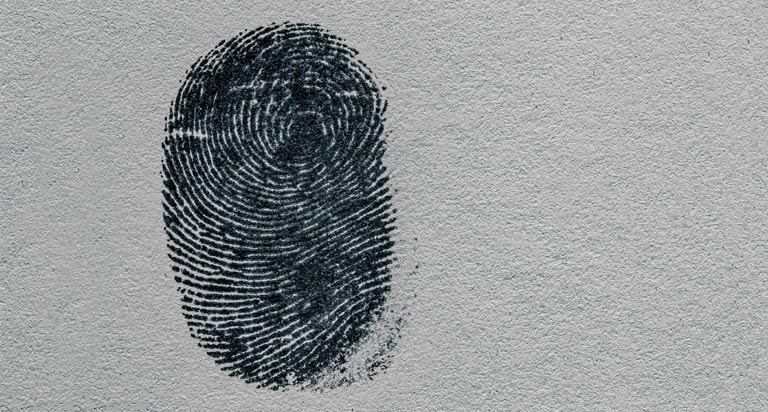8 Types of Identity Theft You Should Know


Highlights:
- Financial identity (ID) theft is the most common type of identity theft. However, ID theft can happen in many forms.
- Early detection is key to minimizing damage when your personal information is stolen.
- There are measures you can take to help better protect yourself and your personal information.
Identity (ID) theft occurs when a stranger gains access to your personal information without your knowledge or consent. An ID thief may use your information to open lines of credit in your name or submit applications for things like employment, insurance coverage or housing.
If left unchecked, identity theft could negatively impact your credit reports and credit scores, or make it difficult for you to reach personal financial goals. So, it’s important to understand the different types of ID theft, how they occur and what you can do to protect yourself and your personal information.
What are the different types of identity theft?
These are some of the most common types of identity theft, as well as steps you can take to help combat them:
Financial identity theft. This is the most common form of identity theft — when someone uses another person's information for financial gain. For instance, an ID thief may use your bank account or credit card numbers to steal money or make purchases, or they may use your Social Security number to open a new credit card.
What you can do: Some criminals may start by making small credit or debit charges in hopes you don't notice them. So, check your account statements regularly. If you see a charge you don’t recognize, contact your bank or credit card company.
In the case of new accounts created by an ID thief in your name, you may not receive a bill or statement. If you think your personal information has been compromised, placing a security freeze or a one-year initial fraud alert on your credit reports may help prevent access to open new accounts. Visit our security freeze page to learn how to place a security freeze on your Equifax credit report.
In addition, check your credit reports from each of the three nationwide consumer reporting agencies – Equifax, TransUnion and Experian – for any accounts you don’t recognize.
You can visit AnnualCreditReport.com to access a free credit report from each of the three nationwide consumer reporting agencies every 12 months. You can also receive multiple Equifax credit reports each year with a free myEquifax account. Sign up and look for “Equifax Credit Report” on your myEquifax dashboard.
Tax identity theft. This type of identity theft involves ID thieves using your personal information to file a tax return and get a refund – your refund.
What you can do: Be alert for phone calls, texts and emails claiming to be from the Internal Revenue Service (IRS). The IRS will not contact consumers using these methods and won’t threaten legal action. Never provide any personal information in response to an unsolicited phone call, email, social media message or text message.
If your tax return is rejected because someone has filed a return in your name already, contact the IRS. You may need to file a fraud claim and receive a PIN to use on future tax returns.
Medical identity theft. In the case of medical identity theft, a fraudster will use your personal information to receive health care in your name.
What you can do: Review any Explanation of Benefits statements you receive from your health insurer for mistakes or unfamiliar charges. If you see activity you don’t recognize, report it to your insurance company. Check with your doctor to ensure your medical records are accurate. If you start getting bills for medical services you didn’t receive, call the provider and dispute the charges.
Employment identity theft. Identity thieves may use your information to get a job or pass a background check.
What you can do: Be wary of any potential employers asking for credit or bank account information for the purposes of a background check, particularly if they haven't interviewed you yet. In addition, be wary of any communication from a personal email address instead of a company email. The federal government’s E-Verify site can show you all employers that have checked your records, so you can see if there are any unfamiliar ones.
Child identity theft. Most children under 16 don’t have credit reports, so it’s possible for a fraudster to open credit accounts in their name undetected. Some victims of child identity theft may not learn of the activity until they apply for student loans or a job later in life.
What you can do: If you suspect child ID theft, check with the three nationwide consumer reporting agencies to see if your child has a credit report. If they do, you can file an Identity Theft Report with the Federal Trade Commission (FTC) and take other action, such as placing a security freeze on your child’s credit report or locking it. See more from the FTC on child identity theft.
Estate identity theft. This occurs when an ID thief uses the personal information of a deceased person to steal money or open accounts.
What you can do: Make sure the three nationwide consumer reporting agencies place a death notice on the deceased person’s credit reports. See this Equifax article on other credit-related steps to consider after a relative’s death.
Criminal identity theft. All identity theft is criminal, but this particular type occurs when someone who has been arrested provides your personal information to law enforcement. You generally won’t be able to detect criminal ID theft until consequences arise – for instance, a speeding ticket goes unpaid and a judge issues a bench warrant for your arrest.
What you can do: Consider limiting the amount of personal information you share on social media, as you never know who might access it. If you are a victim of criminal identity theft, contact law enforcement immediately. You can find more information about criminal identity theft at the federal government’s Identity Theft Resource Center.
Synthetic identity theft. In synthetic identity theft, ID thieves create identities using fake or real information, or a combination of the two. For instance, an identity thief might use a real Social Security number combined with a name that’s not associated with that number. Children and deceased people can be especially vulnerable since their Social Security numbers typically aren’t actively used.
What you can do: Regularly check your credit reports, as well as those belonging to seniors and, if applicable, your children. Consider an identity monitoring service that scans the “dark web” for Social Security numbers that may have been accessed by criminals. You might also consider placing a security freeze on any credit reports connected to the individuals affected by the theft.
How do I know if I’ve been a victim of identity theft?
With any type of ID theft, a key to minimizing damage is detecting it early. Checking your credit reports, credit card accounts and bank statements is one way to spot any suspicious activity and take immediate action.
Early warning signs of ID theft may include:
- Receiving bills for items you didn’t purchase, accounts you don’t recognize, medical care you didn’t receive or other services you didn’t use
- Finding unknown charges on your credit card or bank statement
- Receiving calls from collection agencies about debts that are unfamiliar to you
- Seeing surprise withdrawals from your checking, savings or other financial accounts
- Receiving unexpected loan application denials, especially if you have a strong credit history
- Discovering that more than one tax return has been filed in your name
How can I help better protect against identity theft?
Here are some ways you can better protect yourself and your loved ones against identity theft:
- Consider signing up for an ID theft protection program. These services may be able to help notify you early of identity theft in order to help limit the damage. For a monthly fee, ID theft protection programs help better protect your identity, monitor your credit and provide identity theft restoration.
- Regularly check your bills and credit card statements. Many scammers who already have your personal information will try to make small charges first, to see if they can get away with it, before moving on to larger purchases. Review the transactions on your statements thoroughly before paying your bills. Notify your bank or creditor immediately if you see any purchase that you didn’t make or any loan that you didn’t apply for.
- Use unique passwords for your accounts and shred paper statements before disposing of them. If a scammer already knows the login information for one of your accounts, they will likely test it on other accounts. Using unique passwords and changing them regularly makes it more difficult for scammers to access your personal information. Shredding physical credit card statements or bills also deters people who are trying to steal your data. You may want to keep your most recent statements, IRS correspondence and utility bills in a safe and shred the rest.
- Help safeguard young or elderly family members. Anyone can experience identity theft; however, children and the elderly are especially at risk. Seniors may be more likely to be polite and trust contact by a stranger, and are often less likely to recognize scammers. Child ID theft can be particularly damaging because it may go unnoticed for years and only surface when the child becomes an adult and begins applying for their own credit.
- Track your mail. Some thieves may take bank statements or other documents containing sensitive information right out of your mailbox. To prevent theft, collect your mail daily and track any recurring items, such as monthly bills, to make sure they come on time. If you go on vacation or leave your residence for an extended period of time for any other reason, be sure to notify the USPS and any other delivery services to put your mail and packages on hold while you’re away.
Reporting identity theft
If you suspect that you are a victim of identity theft, report it to the FTC via IdentityTheft.gov. The website will walk you through the process of reporting your situation and how to get a recovery plan in place. You can also call the FTC at 877-438-4338.
Additionally, you may want to consider reporting the identity theft to one of the three nationwide consumer reporting agencies, like Equifax. You can also contact them to place a fraud alert or freeze your credit reports. The FTC recommends that you regularly get copies of your credit reports to make sure no one has opened credit accounts with your personal information.

Sign up for a credit monitoring & ID theft protection product today!
For $19.95 per month, you can know where you stand with access to your 3-bureau credit report. Sign up for Equifax CompleteTM Premier today!



